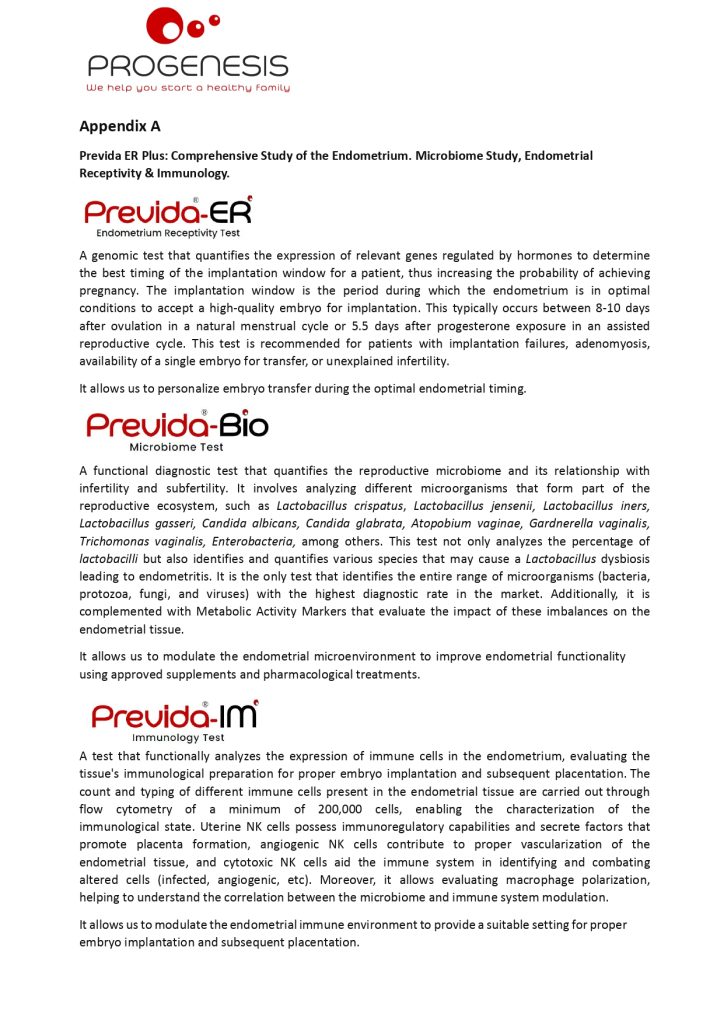




Appendix A
Previda ER Plus: Comprehensive Study of the Endometrium. Microbiome Study, Endometrial Receptivity & Immunology.


A functional diagnostic test that quantifies the reproductive microbiome and its relationship with infertility and subfertility. It involves analyzing different microorganisms that form part of the reproductive ecosystem, such as Lactobacillus crispatus, Lactobacillus jensenii, Lactobacillus iners, Lactobacillus gasseri, Candida albicans, Candida glabrata, Atopobium vaginae, Gardnerella vaginalis, Trichomonas vaginalis, Enterobacteria, among others. This test not only analyzes the percentage of lactobacilli but also identifies and quantifies various species that may cause a Lactobacillus dysbiosis leading to endometritis. It is the only test that identifies the entire range of microorganisms (bacteria, protozoa, fungi, and viruses) with the highest diagnostic rate in the market. Additionally, it is complemented with Metabolic Activity Markers that evaluate the impact of these imbalances on the endometrial tissue.
It allows us to modulate the endometrial microenvironment to improve endometrial functionality using approved supplements and pharmacological treatments.

A test that functionally analyzes the expression of immune cells in the endometrium, evaluating the tissue’s immunological preparation for proper embryo implantation and subsequent placentation. The count and typing of different immune cells present in the endometrial tissue are carried out through flow cytometry of a minimum of 200,000 cells, enabling the characterization of the immunological state. Uterine NK cells possess immunoregulatory capabilities and secrete factors that promote placenta formation, angiogenic NK cells contribute to proper vascularization of the endometrial tissue, and cytotoxic NK cells aid the immune system in identifying and combating altered cells (infected, angiogenic, etc). Moreover, it allows evaluating macrophage polarization, helping to understand the correlation between the microbiome and immune system modulation.
It allows us to modulate the endometrial immune environment to provide a suitable setting for proper embryo implantation and subsequent placentation.



